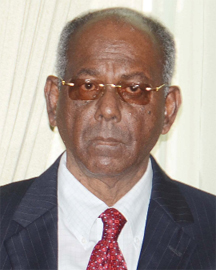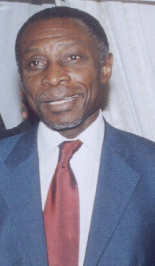Former Speaker of the National Assembly Ralph Ramkarran has acknowledged gaps in the parliamentary records but dismisses any assertions that their disappearance is deliberate, saying that it was under his stewardship that programmes commenced to bring the records up to date.
This follows revelations from Clerk of the National Assembly Sherlock Isaacs and his predecessor Frank Narain as to what might have happened to transcripts for the period 1985 to 1992. Two weeks ago, Speaker of the National Assembly Raphael Trotman tabled a report in Parliament on the result of his investigation into the missing documentation at the behest of A Partnership for National Unity (APNU) Member of Parliament Carl Greenidge, who had tabled a Motion asking the Speaker to conduct an inquiry.


“I knew that there were some missing and there were efforts to locate them. Hansards were not printed since the 1970s,” he said. But, he said, as far as he was aware, Hansards were printed from 1992 through 2010. He said there are still some minor delays with the printing by the Hansard Division and it takes about four weeks from the time a session is held to the time that the corresponding Hansard is prepared.
“We got help from various sources and we printed from 1992 onwards. At the time I knew some were missing. It was not known what had happened to them,” he said.
But he disputed any inclination that the disappearance or destruction of the Hansards or other records would have been a deliberate act. “The Hansards were never in the control of any politician,” he said, adding that they were under the control of the Clerk of the National Assembly and the staff of Parliament.
When told that the Clerk of the National Assembly had said he found out the matter only after Greenidge had brought it to the attention of the staff, Ramkarran said it is possible that he was told of this but could not be sure. “I don’t recall specifically that they had been soaked,” he said. “I do not run the office so I do not get a blow by blow account,” he added.
He recalled when the entire western wing of the Public Buildings was in a deluge. “The rainfall that occurred on the western wing of the Parliament Buildings was a highly unusual event. It blew away a part of the roof and soaked materials,” he said.
Ramkarran noted that there were no facilities or human resources at the time to take care of records. He said that there was a proposal in 2005 to construct an additional wing meant to give additional storage capacity. The proposal went to Cabinet and there was nothing else heard of it.
“In the absence of storage, there could be no guarantee that the records [could be preserved],” he said. He added that it took in excess of $20 million to effect repairs to the roof.
‘Inconclusive’
Greenidge, in a recent interview with Stabroek News, expressed disappointment with the outcome of the investigation, saying that he was unconvinced that enough had been done to save the documents said to have been soaked by rain from the leaky roof.
Current Speaker of the National Assembly Raphael Trotman said that Greenidge has a right to be concerned, since the investigation into the missing Hansards is still inconclusive.
Trotman said that he does not have the institutional capacity to investigate and interrogate persons and the time he had to conduct the inquiry and prepare a report was limited. “I tried my best to speak to the relevant persons. I quite understand Greenidge’s feeling of dissatisfaction. I took it as far as I could have [given the constraints] and I did [take measures] to ensure that this does not happen in the future,” he said. “We explored writing to Members of Parliament for that period but we got no response from them,” he added.
He added that when the parliamentary recess ends, the issue could possibly be discussed in a committee, while also noting that there are gaps in parliamentary documentation in the post-1992 period also.
Meanwhile, Eileen Cox, the consumer advocate, worked as reporter and then Hansard Editor in the Parliament Office for a span of 30 years, leaving in the mid-1990s. “What I know is that there was some difficulty in getting reporters because shorthand went out of fashion,” said Cox. “What I know happened after I left is that they got a consultant to undertake to do the work,” she added.
She said that the contractor at the time was finding it difficult to get the documents for printing. “At one stage he told me he had over 100 transcripts. “Now, a transcript is 10 minutes.
So that is a lot of work,” she said. “We didn’t have time to do it because meetings would be going on and [the work would pile up],” she said.
According to Cox, when listening to recordings, sometimes the problem was encountered where two people might have similar voices. “I don’t know how successful that was…I don’t know how they produced records from that. The records were not kept properly… it was difficult to keep records,” she said, adding that personnel files which included an important letter that she was looking for vanished.









